Two Firms To Pay $9.7 Million To US For Iran Sanctions Violations
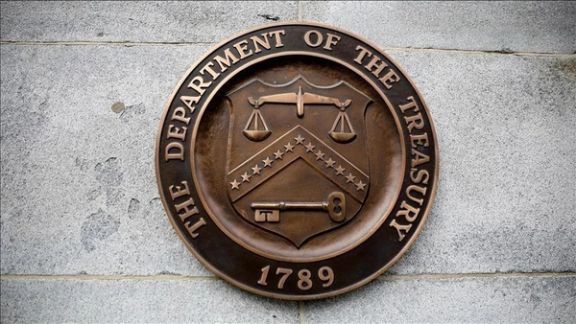
The US government reached settlements with 3M Company and Emigrant Bank for their violations of Iran sanctions laws, the Treasury Department announced Thursday.

The US government reached settlements with 3M Company and Emigrant Bank for their violations of Iran sanctions laws, the Treasury Department announced Thursday.
The US Department of the Treasury’s Office of Foreign Assets Control (OFAC) announced a $9.6 million settlement with 3M Company for 54 apparent violations of OFAC sanctions on Iran. The case is related to its subsidiary’s sale of reflective license plate sheeting to an Iranian entity controlled by Iran’s Law Enforcement Forces.
“Between September 2016 and September 2018, 3M East AG sold 43 orders of this product to a reseller with knowledge that it was destined for a customer in Iran,” the statement said and added, “OFAC determined that these apparent violations were egregious and were voluntarily self-disclosed.”
In a much smaller settlement, Emigrant Bank agreed to remit more than $31,000 to settle its potential civil liability for maintaining a Certificate of Deposit Account on behalf of two individuals located in Iran, for 26 years.
The low amount of this settlement, the Treasury said, reflected “OFAC’s determination that Emigrant’s conduct was non-egregious and voluntarily self-disclosed.”
In one of the largest such settlements, Italy’s top bank UniCredit SpA and two subsidiaries agreed in April 2019 to pay $1.3 billion to US authorities to settle probes of violations of US sanctions on Iran and other countries.
In 2017, ZTE Corporation agreed to enter a guilty plea and pay a $892 million penalty to the US for conspiring to illegally ship US-origin items to Iran.
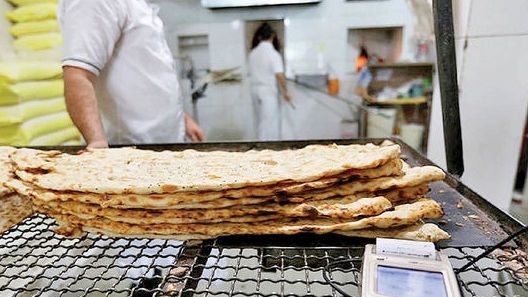
Faced with an apparent financial crunch to subsidize bread, the Iranian government is gradually raising prices, a move that can have both political and inflationary repercussion.
To avoid public blame and anger the government is trying to redirect the responsibility to provincial officials, although the central government would remain the main decision maker.
Iran's economy minister Ehsan Khanzoudi said on Wednesday that provincial authorities are now authorized to decide the prices of various types of bread, always set nationally before, “based on local circumstances”.
Earlier in September Government Spokesman Ali Bahadori-Jahromi had said in a televised interview that “the government has no plans to increase the price of bread” but added that provincial authorities in the future would be deciding the price of bread with the “approval of the interior ministry.”
Khandouzi also confirmed that provincial authorities need the approval of the interior ministry for increasing the price of bread in their respective provinces and added that the government will “specifically supervise bread prices.”.
Since Iran reduced subsidies for food and medicine last year, the government had repeatedly vowed not to increase bread prices. In May 2022 Khandouzi had stated that an increase in the price of bread was “the President’s redline” and other officials had repeated his promise of keeping the price of bread steady.
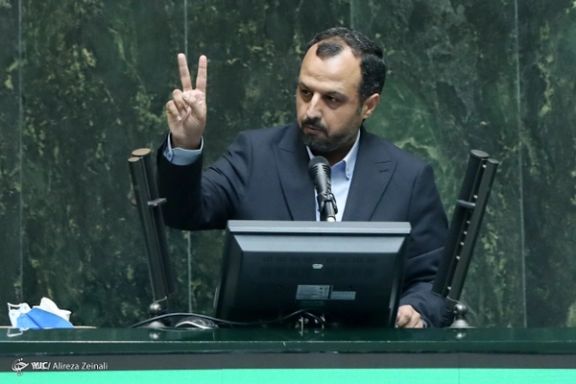
The government of President Ebrahim Raisi appears to be delegating the pricing of bread to provincial authorities to minimize criticism of its dismal economic performance including skyrocketing food prices analysts say. Prices rose as much as 100 percent in the past year for ordinary food items.
In early August after weeks of contradictory statements and denials, the government finally confirmed that bread prices had increased in 13 provinces by around 40 percent.
Analysts say the capital Tehran and Tehran Province, the most populous in the countrywith a population of over 13 million, were spared so far for political reasons including possibility of protests.
In the past few days, the price of Sangak, a popular flatbread weighing around 450g, rose by 50 percent from 20,000 rials to 30,000 (around 7 cents) in Tehran and surrounding regions due to a drop in the flour subsidy allocated to bakeries.
Bread prices in Iran might seem cheap by world standards, but any increase in the price of bread can hugely affect impoverished households given that bread is the main staple in Iranians’ diet.
Iranians are the second biggest bread consumers in the world with annually 160kg (350 lb) per person after Turkish consumers with 199.6 kg (440 lb) per person.
Bread consumption in Iran has risen by ten kilos in the past ten years due to higher cost of living that has made rice less affordable to many Iranians, particularly the three lowest-income percentiles.
Iran's food inflation rate, according to World Bank figures in June, stood at 78 percent, placing the country in the fifth place in the world after Venezuela (426%), Lebanon (350%), Argentina (115%), and Zimbabwe (102%). In April Iran had ranked fourth among the countries with the highest food inflation with a food inflation rate of 71 percent.
On May 1, 2022, the parliament voted to allow the government to scrape an annual $10-14 billion subsidy for essential food and medicine despite warnings of higher inflation, which already stood at around 40 percent, and hardship for the most vulnerable. This led to a ten-fold increase in the price of flour.
The government of President Raisi then introduced a “smart plan” to continue the bread subsidy and issued digital cards that have to be used at the time of purchase, arguing that the plan would prevent the smuggling of subsidized flour and bread to neighboring countries where they sold at much higher prices.
Earlier in June the Bakers’ Union revealed that subsidized flour allocations to some bakeries had dropped by more than half their quota. Bakers say despite the lower cost of subsidized flour, other production costs (labor, other ingredients including yeast and oil) have increased, and their sales have dropped so much in the past year that they are not able to make a profit even by using subsidized flour.
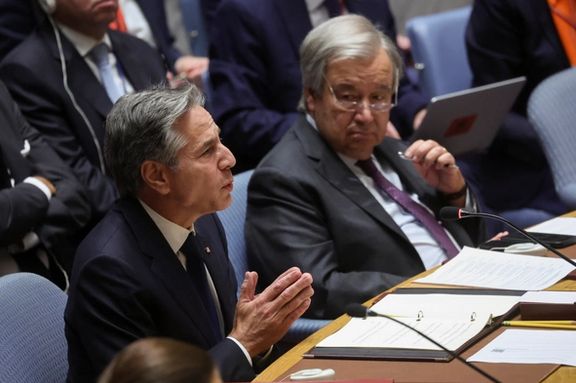
Despite outcry over the US-Iran prisoner swap, Secretary of State Antony Blinken defended the deal but acknowledged that Iran may use the money for military purposes.
During an interview with CBS News on Wednesday, Blinken addressed concerns that the deal to release five Iranians in addition to $6 billion of the frozen assets in exchange for five Iranian-Americans who were held hostage could encourage further hostage-taking.
“These proceeds from Iran’s oil sales, they’ve always been entitled to use. Just as a practical matter, they couldn’t. But the other thing is whether we like it or not – and we don’t like it – the Iranians have always found ways to use money, whether there are sanctions or not, for military purposes," Blinken said, describing the agreement as a hard decision. "These are hard decisions, hard decisions for the president to make.”
However, a few minutes earlier in the interview, he had claimed that “we made an arrangement with the bank in question – this is a bank in Qatar – to make sure that we would have clear visibility over the way the money is spent,” claiming that if it is not being spent for humanitarian reasons such as food and medicine, “it’ll get shut down.”
The top US diplomat reiterated that “From day one for our sanctions, this has always been exempt, being able to use money, including by Iran, for humanitarian purposes – it’s always been exempt from our sanctions.”
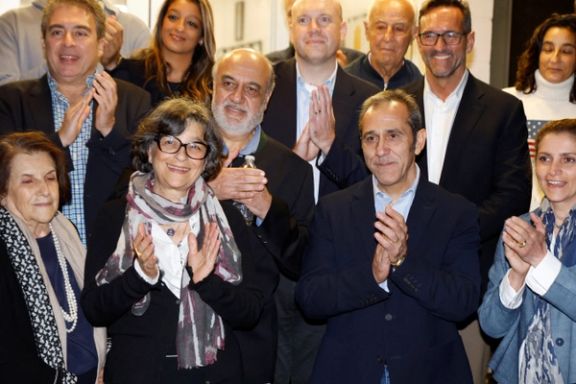
Countless activists and politicians – mainly Republicans – have voiced opposition to the exchange, saying financial reward in a hostage situation will incentivize future hostage-taking.
The sentiment was echoed by several editorial articles in the past few days, even by the Washington Post, whose editorial board has predominantly endorsed Democrats in various elections.
The Post said the prisoner deal rewards noxious regimes and continues a miserable cycle of state-sponsored hostage-taking, “a barbaric practice that thrives on rewards and concessions from the United States and other nations.”
The daily pointed out that even if the Biden administration manages to step up monitoring on how the released money will be disbursed, the economic boost “will undoubtedly free up other funds to spend on more nefarious purposes, such as buying weapons.”
Highlighting that too many Americans remain unjustly held in Russia, Venezuela, Syria, and elsewhere around the world, the Post said these regimes view hostages as “a currency to be traded for future gain.”
It argued that the best deterrent to end this vicious cycle would be for the United States and other nations to refuse to negotiate for the release of such hostages, otherwise, “Rogue states clang the jail door shut and wait for the next payoff, and they almost never suffer consequences for stealing people off the street.” “The harsh truth is that rewarding hostage-taking breeds more of the same.”
In another editorial highlighting somewhat similar concerns, The Wall Street Journal Tuesday delved into the question of how Biden could prevent future attempts at ransom grabs. It underlined that the Islamic Republic has paid no price for imprisoning Americans and has now been paid ransom for them, calling it “part of Tehran’s business model" which works fine for the regime.
The Journal calls it “insulting” that White House National Security Council official Brett McGurk claims that the funds will be spent “only on a limited category of humanitarian trade: food, medicine and agricultural products,” saying that McGurk may be technically right about those specific funds. “But that leaves the Tehran regime able to devote other funds they would have spent on those goods for such malevolent purposes as terrorism by the Islamic Revolutionary Guard Corps.”
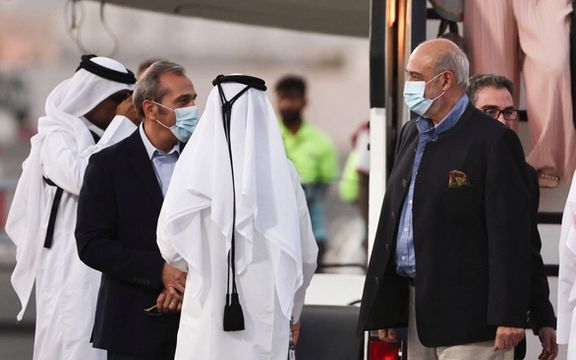
After US hostages were released this week, Qatar is pressing Iran and the United States to engage in more talks over nuclear and other issues, Reuters reported.
Quoting three regional sources familiar with discussions that Doha has held with Tehran and Washington, the effort is aimed at reaching “understandings” to iron out some differences. The aim is to address slowing Tehran's uranium enrichment alongside more international monitoring, curbing activities of Iran's proxy militias in the region and halting Iran's drone exports, all in return for some waivers on US sanctions on Iranian oil exports, the three sources said.
Officials in Doha said Qatari officials would hold separate meetings with Iranian and US officials on the sidelines of the UN General Assembly in New York this week. One source briefed on the talks told Reuters those meetings would include discussing enrichment and Iranian drones.
If there is progress, Qatar aims to host indirect talks between Tehran and Washington, the source said. Qatar helped forge the hostage release deal with shuttle diplomacy between Iranian and US negotiators staying in separate hotels in Doha. The Biden administration agreed to authorize the release of $6 billion in Iranian funds blocked in South Korea since 2018.
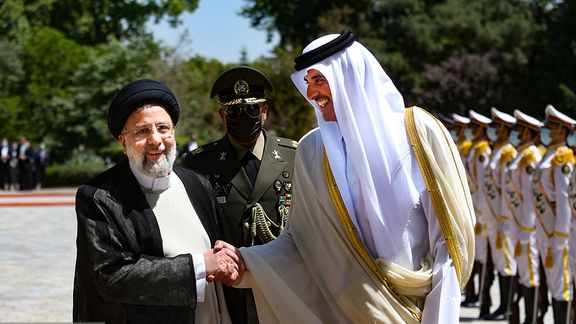
Various media have been long reporting about a potential limited and unwritten agreement after formal talks to revive the 2015 JCPOA failed last year. Speculations in this regard became more frequent since June when the US authorized the release of $2.7 billion blocked in Iraqi banks. The Biden administration has played down any prospect of a wider deal, because according to the law, it must report to the US Congress about any nuclear agreement with Iran.
Republicans and some Democrats are becoming more critical of the Iranian regime and the administration’s apparent secret dealings with Tehran. The House of Representatives overwhelmingly passed the Mahsa Act September 13, which hardened US sanctions against Iran’s ruler Ali Khamenei and President Ebrahim Raisi.
When the US hostages were released earlier this week, Secretary of State Antony Blinken left the door open to diplomacy on the nuclear file, which he described as "perhaps the number one issue of concern", but said nothing was imminent.
"In this moment, we're not engaged on that, but we'll see in the future if there are opportunities," he said in New York, in his response to a question about whether there could be more indirect talks with Iran soon.
Two Iranian insiders said there would be indirect meetings between Tehran and Washington in New York that could pave the way for talks on a nuclear "understanding". They said Iran had never shut the door to nuclear diplomacy.
Another Iranian insider briefed on discussions so far with Qatar told Reuters: "Considering the upcoming US elections, it is possible to reach an understanding that will involve issuing waivers on banking and oil sectors that would allow Iran to export its oil freely and get its money back via the banking system" - currently barred by existing US sanctions.
This would mean an almost total unravelling of economic sanctions imposed since 2018, while leaving Iran on the nuclear threshold, with more than 100 kilograms of uranium enriched to 60 percent.
The three regional sources said Tehran had already committed to lowering enrichment of uranium to 60% - below the roughly 90% needed for a nuclear weapon - and was ready to resume cooperation with the UN International Atomic Energy Agency (IAEA) which monitors Iran's nuclear work.
However, last week Iran withdrew accreditation to several UN nuclear inspectors, angering the IAEA and Western powers that later issued a statement calling on Tehran to rescind its decision. Iran could be upping the ante precisely because there are behind the scenes talks, to extract maximum concessions.
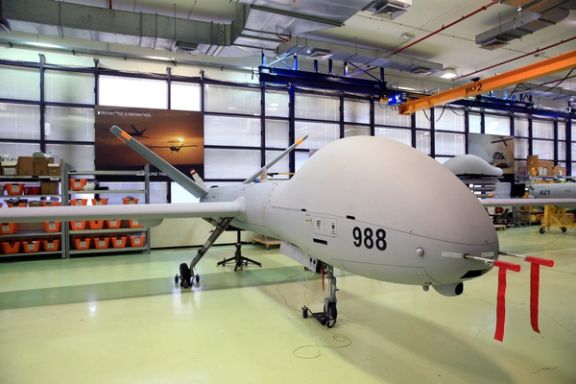
The United States has imposed sanctions on seven individuals and four entities in Iran, China, Russia, and Turkey for their roles in Iran's UAV and military aircraft development.
The Office of Foreign Assets Control (OFAC) says the network has been instrumental in facilitating shipments and financial transactions aimed at supporting the Iran Aircraft Manufacturing Industrial Company (HESA), which is already designated by the US.
The moves follow several actions this week to further sanction individuals connected to the regime, including a former president, in the wake of a prisoner exchange between Iran and the US, which saw the release of $6bn of Iran's frozen funds unblocked from South Korea, in what critics suggest is a way for the Biden administration to pacify those who say the deal has only paved the way for more hostage diplomacy from the regime.
HESA is known for manufacturing UAVs, including the Ababil and Shahed series, and has previously faced US sanctions due to its affiliations with Iran's Ministry of Defense and Armed Forces Logistics and its support for the Islamic Revolutionary Guard Corps (IRGC).
In an attempt to circumvent US sanctions and export controls, HESA has used alternative names, such as Shahin Co.
Among the designated individuals are Mehdi Gogerdchian, Hamidreza Noori, and Husayn A'ini, who have been acting on behalf of HESA, the China-based Shenzhen Jiasibo Technology Company and its owner Su Chunpeng, and Guilin Alpha Rubber and Plastics Technology Company, represented by Dong Wenbo.
Several Russian entities, including Delta-Aero Technical Service Center LLC, have supplied propellers, tires, and conducted tests and overhauls for HESA's aircraft.
Turkish money exchangers Mehmet Tokdemir and Alaaddin Aykut have facilitated financial transactions in US dollars and euros to support HESA's procurement activities from various suppliers.
The sanctions dictate that all property and interests in property belonging to the designated individuals and entities within US jurisdiction must be blocked and reported to OFAC. Any transactions involving the assets of the blocked individuals or entities are strictly prohibited.
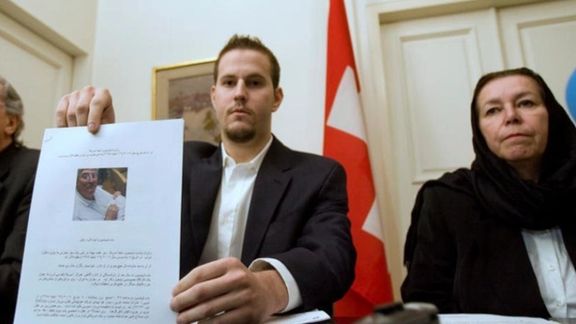
Families of Iran’s hostages not included in the US prisoner swap deal have called on Washington for an explanation on the fate of their loved ones.
The family of retired FBI agent Bob Levinson, who disappeared in Iran in 2007, and the daughter of Jamshid Sharmahd, who is on death row in Iran, issued separate statements after the regime freed five American citizens in exchange for $6 billion and five Iranians detained in the US. The other American resident that was not included in the deal was Shahb Dalili, an Iranian citizen with permanent residence status in the United States who remains imprisoned in Iran.
Dalili, a former captain of Iran Shipping Company and a US resident, was arrested during a trip to Tehran in 2016 for his father's funeral, after which he was apprehended by Iranian security forces. His family held several rounds of sit-ins outside the White House, the latest of which was in August. Darin Dalili, Shahab Dalili's son, has repeatedly pointed out the apparent contradiction with the Robert Levinson Law, which addresses the return of hostages, including US permanent residents. Highlighting a discrepancy between policy and practice, he underlined that despite this law, a green card holder remains imprisoned in Iran without clear resolution or intervention from US authorities.
Levinson, a former FBI agent, was taken prisoner by Iran’s intelligence apparatus while conducting an unauthorized freelance investigation on Kish Island, off Iran’s southern coast. Iranian officials have never explicitly acknowledged detaining Levinson, while US officials believe he was held as a possible bargaining chip.
During an interview with CBS in 2012, former President Mahmoud Ahmadinejad did not deny that Levinson was being held and implied there had been talks of a prisoner exchange. His family announced that he was presumed dead in March 2020, on the advice of US officials.
The Levinsons said in their statement, “We will never stop demanding that Iranian leaders answer for what happened to Robert Levinson, the greatest man we have ever known. His abduction on Iranian soil in March 2007, his years of imprisonment with a total lack of any human rights or decency, and ultimately his murder, are on their hands.”

They described the release of the Americans as part of the new deal as “good news,” saying, “Today is a great day because American hostages unjustly held by the government of Iran have been returned to their families... But make no mistake: Today’s good news does not end our family’s nightmare and ongoing pain. Nor does it mask or excuse the shameful cruelty and unending lies of the Iranian regime.”
They also expressed gratitude to the Biden Administration for sanctioning former President Mahmoud Ahmadinejad and Iran’s Ministry of Intelligence (MOIS) "for their involvement in the constant promotion of lies about Robert Levinson’s whereabouts that still persist to this day.”
Immediately after the release of the hostages – at least three of whom are Iranian-Americans -- President Joe Biden announced fresh sanctions on the hardline former Iranian president and the country’s notorious intelligence ministry over the still undetermined fate of Levinson.
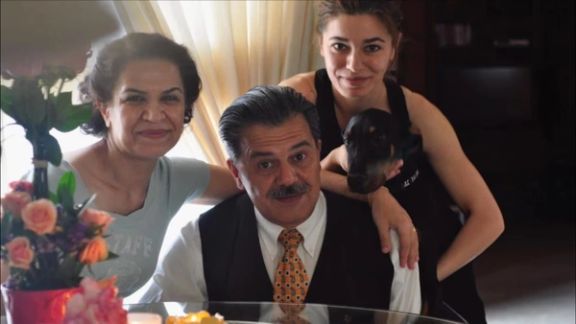
Sharmahd, who holds German and Iranian citizenship and is a US permanent resident, was abducted by Iranian agents in Dubai in 2020, smuggled to Iran, and sentenced to death in February. He was convicted of heading a pro-monarchist group named Tondar accused of a deadly bombing incident that occurred in 2008 at a religious center in Shiraz, killing 14 and injuring 215 more.
Having actively sought US officials' attention through sit-in protests outside the State Department to advocate for her father's case to no avail, Sharmahd's daughter, Gazelle, urged Biden – and German Chancellor Olaf Scholz -- to explain how they are going to ensure her father "will be safe and alive and not murdered."
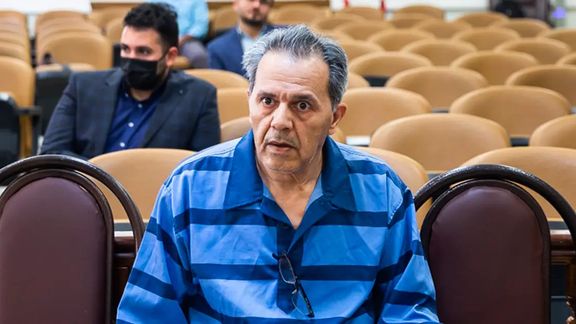
"The last American patriot left behind in a hostage release in 2015 was Bob Levinson, and we all know that cost him his life,” she stated. “At this point, President Biden and Chancellor Scholz owe our family an explanation of how they will redouble their efforts to make sure this horrific hostage-abandonment deal will not cost my dad his life and get him out of the torture chamber to rejoin our family, and what do they plan to do about this in weeks, not months or years."
Referring to her father’s death sentence, Gazelle said her father “was left behind to die.”






